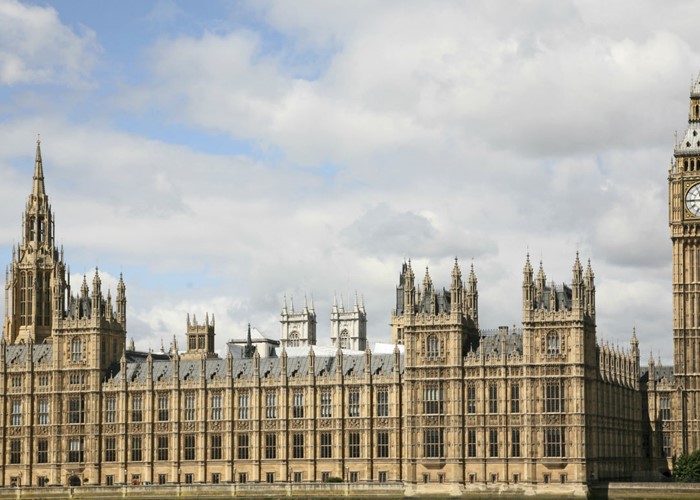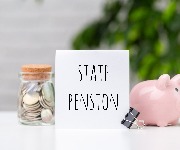Today's question: what do you want from the Chancellor's Autumn Statement?

As George Osborne prepares to deliver the Government's plans for the economy, we want to know what you think he should be focusing on.
Chancellor George Osborne delivers his Autumn Statement on Tuesday and he’s under huge pressure to deliver a plan that offers some hope for economic growth.
The Government is already talking up big projects to boost infrastructure, including improving road and rail links. And they have announced a ‘youth contract’ scheme to help young people into work.
There is also likely to be credit easing to help small businesses gain access to loans, with some of this to potentially be underwritten by the Government.
Meanwhile, various bodies have called for a variety of different measures to get people spending. These include a cut in VAT, abandoning the two planned increases in fuel duty, scrapping the public sector wage freeze and a one-off increase in child benefit before Christmas. There has also been a call to increase the Cash ISA savings limit to the same amount as stocks and shares ISAs (which many of you seem to agree with).
One move that seems likely to happen is a reduced cap on regulated rail fares. These were to be capped at 3% above the Retail Prices Index (RPI) rate of inflation from January. The cap is now likely to be reduced to 1% above RPI. This cap is also likely to be applied to Tube and bus fares in London.
We want to know what you want the Chancellor to deliver. Should he be lowering VAT? Scrapping the fuel duty rises? Or offering something else to get the nation moving again?
We’ll be bringing you reaction to the key announcements from the Autumn Statement that affect our money after the Chancellor’s speech.
More: The RAC reports soaring car costs | Why Britain should want the Euro to collapse
Most Recent
Comments
-
I would ask for road tax on cars to be scrapped and the same for the TV licence. The personal allowance for income tax put up to £10,000 like the Lib Dems promised and benefits linked to CPI/RPI which ever is highest. I would also scrap tax on savings and investments. They could pay for these measures with a 'Robin Hood' tax (financial transactions tax). If there was money left over, use it to protect the NHS. A limit on public sector pay should be a £100,000 a year limit on pay, not an attack on the low paid like nurses.
REPORT This comment has been reported. -
Those on higher rate tax have the start of their state pension automaticly deferred until they are no longer a higher rate tax payer. This will mean two things, one the amount of money paid out in state pension will drop, enabling the government to reduce the amount of borrowing they need without causing too much pain (as once retirement age is reached no further NI contributions are made, so there is some benefit for those on higher salaries). However, secondly, it will mean that once people do start being entitled to receiving their pension they will receive more money so is of direct benefit to them. Related to this there should also be an option for people who have not made enough years of NI contributions to carry on paying NI till such time as they have, again this would reduce the amount of money paid out now. Again this will be of benefit to the individuals as it is money that they previously not had, so is unlikely to be missed, yet enables them to be able to claim a full pension without having to pay the lump sums up front. Although it is likely to be more costly than paying for it, it is likely to be useful for some and will save the government now. On a different thought process government departments and councils should be able to "save" 10% of their budget from one tax year to the next. This will enable, for instance, highway authorities to save money in a year when they haven't had to grit much until such a time when they need to grit more. It will also enable councils to save a bit this year to then spend it, along with next years budget, on bigger projects Likewise they could alternative be able to spend it on more complicated projects, as they do not have to complete the project in a month. It is not uncommon to hear stories of councils "using up budgets" on trivial things in March which they have reserved in case certain events happen, especially when the reserves are winter weather related.
REPORT This comment has been reported. -
Swansswimmer I am a little disappoint by the way you have twisted my post. I think we are going to disagree on the overall approach to the solution. However I do like your final comment: [I] Put money in peoples pockets and if its spent at 'home' we will emerge from this double dip recession much more quickly.[/I] I would make one small change: [B] Take less money out of my pocket and I will spend it at home so we emerge from this double dip recession much more quickly[/B] The key problem with your overall suggestion is that by either increasing the minimum wage or by "increasing their take home pay" through a change in the tax threshold you are doing one of two things: 1. Increasing the financial burden on an Employer considering recruitment. The UK is already a very expensive place for an employer hence so many jobs moving overseas. 2. Increasing the burden on the Govt. (therefore the tax payer) by increasing the threshold - I assume the cost of this would be met by higher rate tax payers who are progressively finding it more attractive to employ a tax lawyer to help set up offshore accts so where would the money come from to cover the cost. As a small business owner I have learned the hard lessons of employing staff that fail to perform and the costly process of terminating employment. So when I generate more work I choose to work longer hours. I am on a 60hr week (not complaining I consider myself lucky), there is no real incentive for me to take the risk of employing someone. The big question or assumption in your statement is that - if people had more money in their pocket would they spend it on UK goods. I know from the weekend having tried to buy some British apples I was offered a choice of 13 overseas apples and 1 home grown product. We need to make it easier to buy real British products. Politically I agree the 50% tax is here to stay even if proven that it costs the country in terms of lost tax through avoidance or by acting as a deterrent to overseas investment in the UK. Its a shame that while financially the right thing to do it cannot be done as its a political poison chalice especially for a coalition with such a small majority. None of my suggestions would directly benefit me barring the saving from the licence fee, I am not a top rate tax payer, I am struggling to save a deposit to buy a house as I took out a loan to keep my business going through the recession and I am not intending to employ anyone. What I do completely support is that any organisation that is UK based, produces or grows a UK product AND pays the standard rate or corporation tax without subsidiaries manipulating their figures through an off shore account SHOULD be allowed to use a branding - Union flag for example. Following a recent audit we know only two companies within the FTSE 100 pay corporation tax in the UK at the normal level. The rest use overseas vehicles to dodge their fair share. 20% of everything is better than 50% of nothing.
REPORT This comment has been reported.
Do you want to comment on this article? You need to be signed in for this feature









28 November 2011